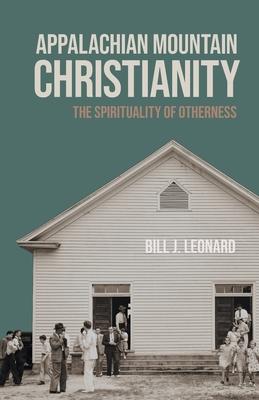Appalachian Mountain Christianity examines the beliefs and practices of certain Protestant religious groups, primarily Baptists and Holiness Pentecostals, whose history is shaped in and by the Central Appalachian context. Particular attention is given to Primitive and Old Regular Baptists as well as certain denominationally connected or independent Pentecostal communions.
Bill J. Leonard explores the ways in which Appalachian cultural and religious transitions and upheavals impact these traditional faith communities; the style and significance of their rituals including preaching, worship, baptism, foot washing, and glossolalia; their varied approaches to scripture and doctrine as evident in their views on salvation and women's roles in church and home; and in the dramatic nonconformity of two specific Appalachian traditions, the Pentecostal Serpent Handlers and the Primitive Baptist Universalists. Through his examination, Leonard suggests that the ideas and actions of these Appalachian Christians reflect the spirituality of otherness. This is not the otherness of inferiority or ignorance by which Appalachians and their churches are often caricatured but the otherness of religious experiences that focus on encounters with the Divine and contribute to individual and collective spiritual insight and "inwardness." Those traditions and the spirituality that centers them are worth exploring, even for those who do not join them.
Book
Appalachian Mountain Christianity: The Spirituality of Otherness
(Write a Review)
$21.96
Appalachian Mountain Christianity examines the beliefs and practices of certain Protestant religious groups, primarily Baptists and Holiness Pentecostals, whose history is shaped in and by the Central Appalachian context. Particular attention is given to Primitive and Old Regular Baptists as well as certain denominationally connected or independent Pentecostal communions.
Bill J. Leonard explores the ways in which Appalachian cultural and religious transitions and upheavals impact these traditional faith communities; the style and significance of their rituals including preaching, worship, baptism, foot washing, and glossolalia; their varied approaches to scripture and doctrine as evident in their views on salvation and women's roles in church and home; and in the dramatic nonconformity of two specific Appalachian traditions, the Pentecostal Serpent Handlers and the Primitive Baptist Universalists. Through his examination, Leonard suggests that the ideas and actions of these Appalachian Christians reflect the spirituality of otherness. This is not the otherness of inferiority or ignorance by which Appalachians and their churches are often caricatured but the otherness of religious experiences that focus on encounters with the Divine and contribute to individual and collective spiritual insight and "inwardness." Those traditions and the spirituality that centers them are worth exploring, even for those who do not join them.Paperback
$21.96